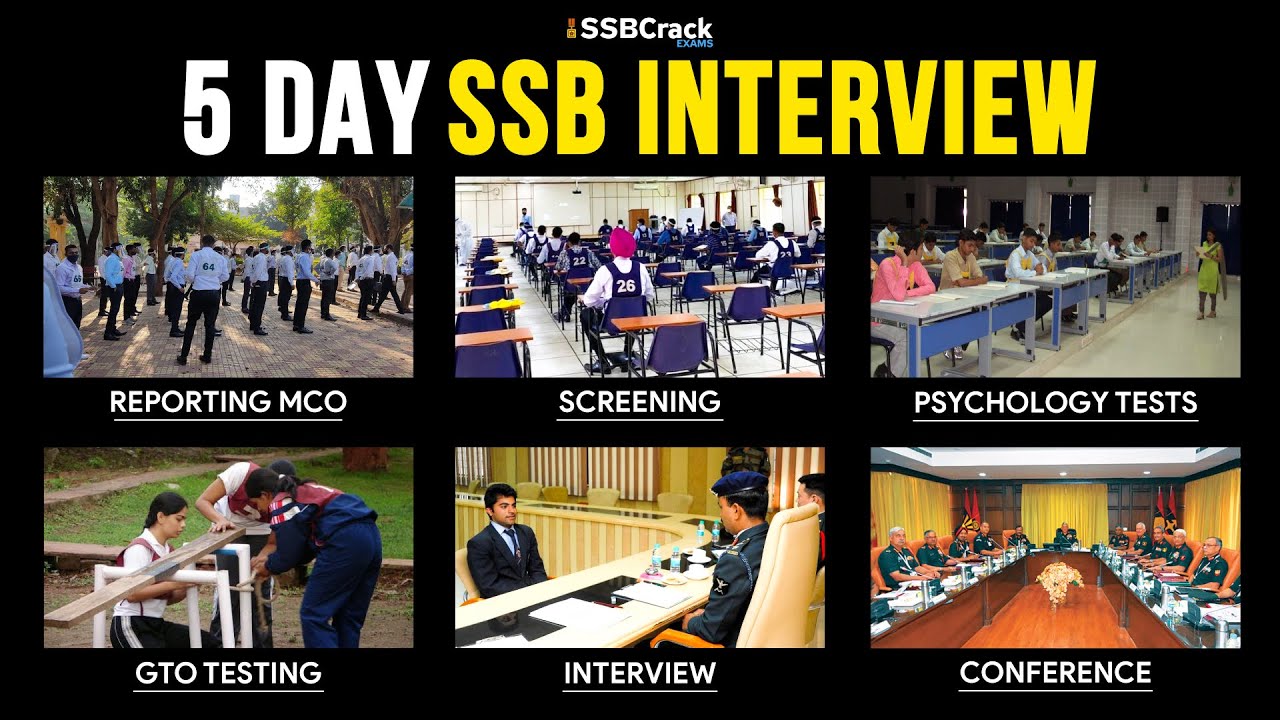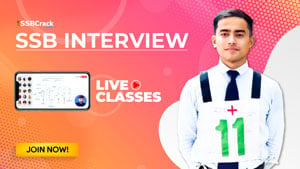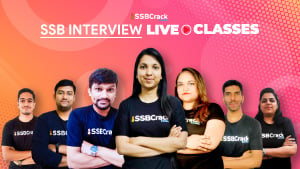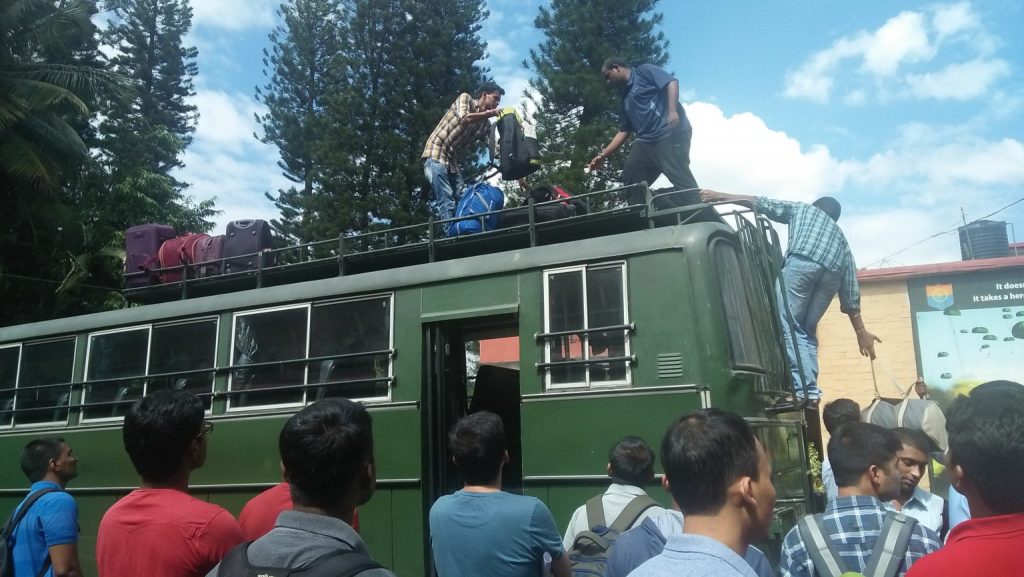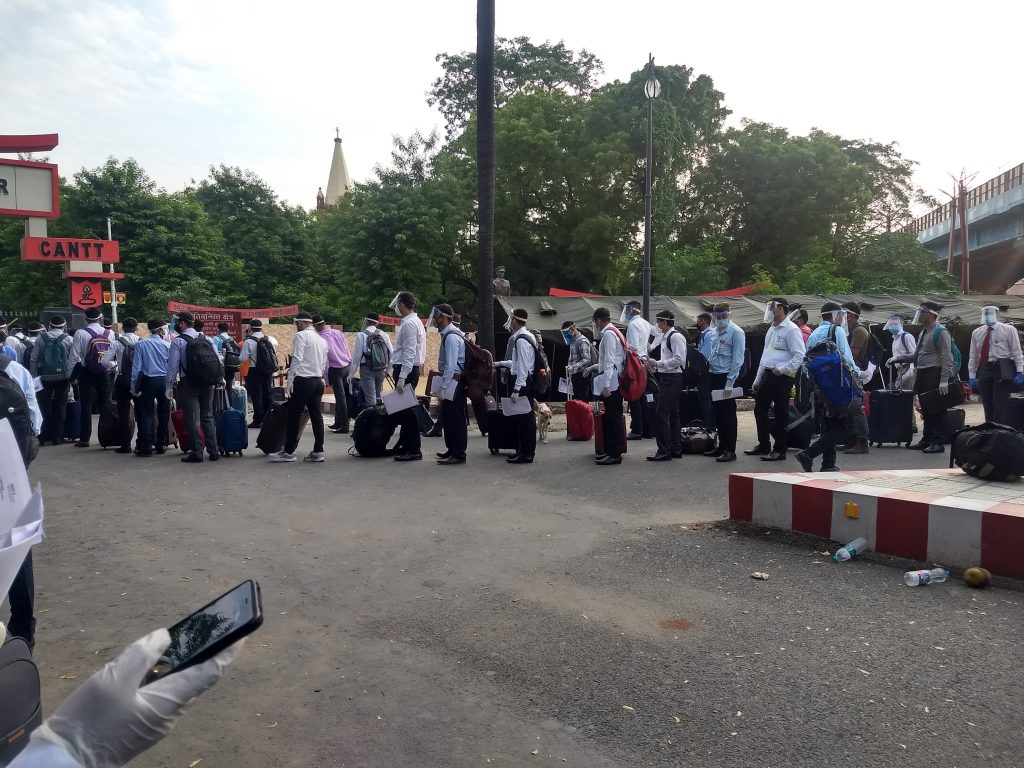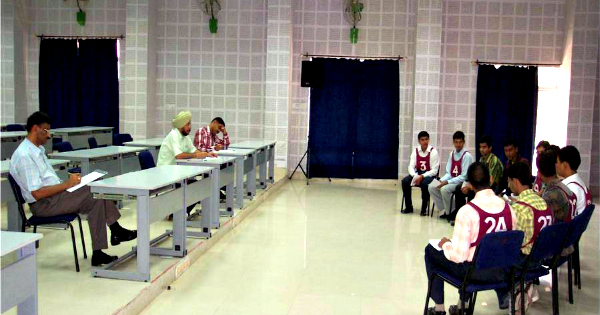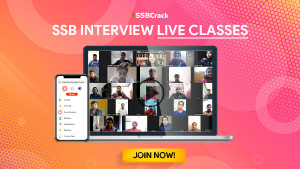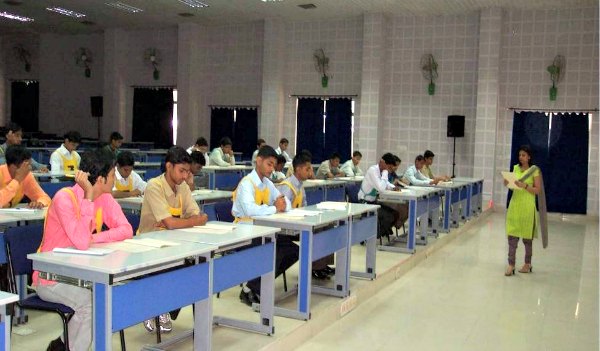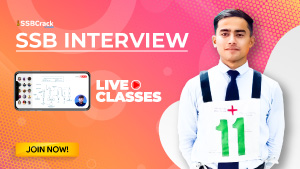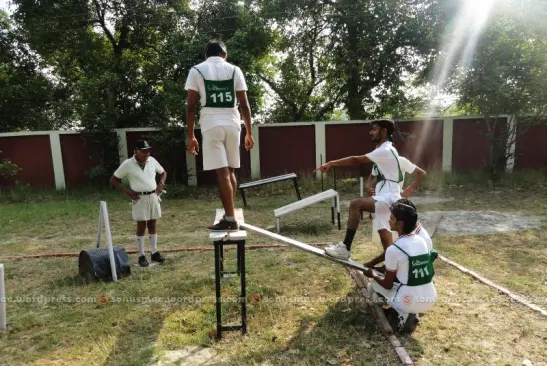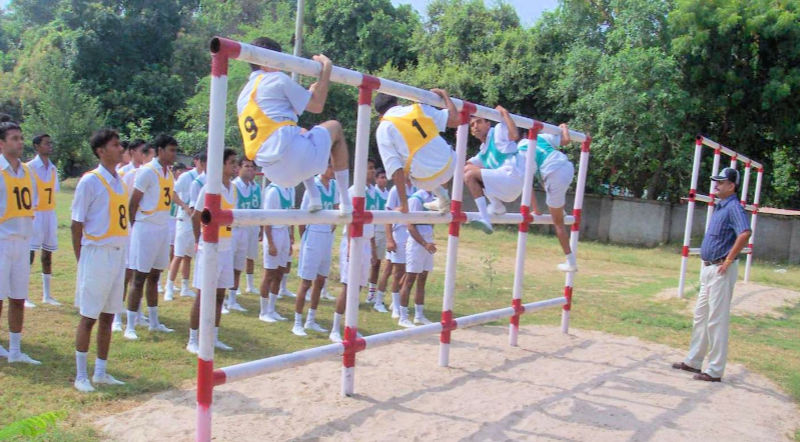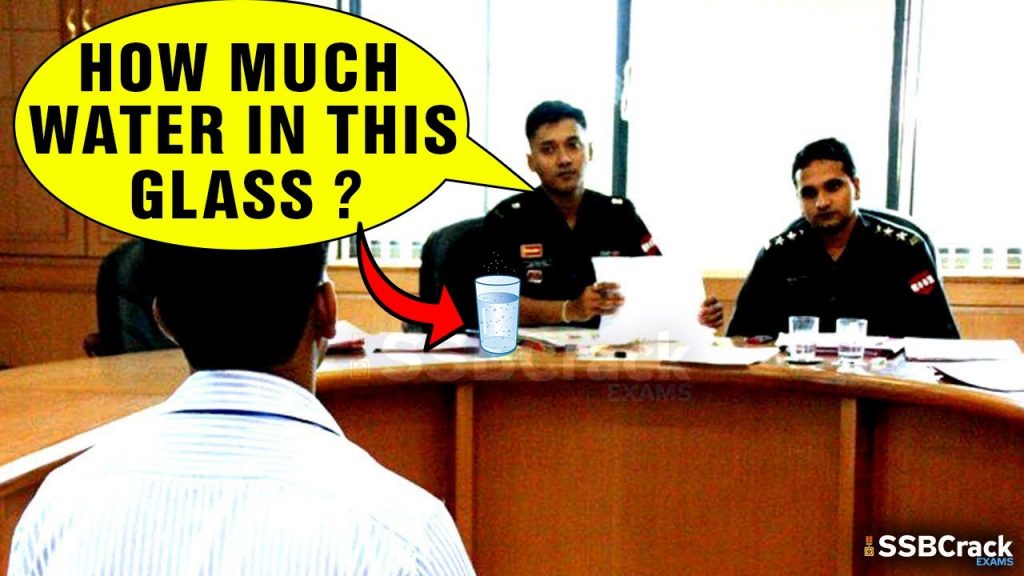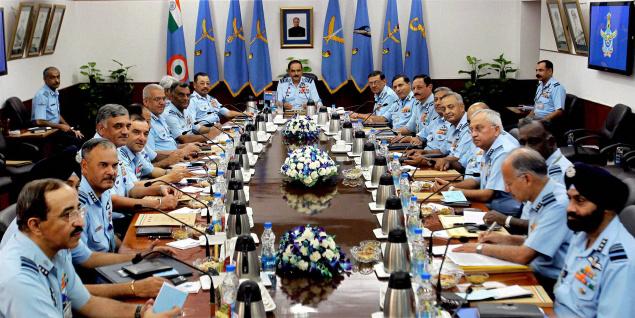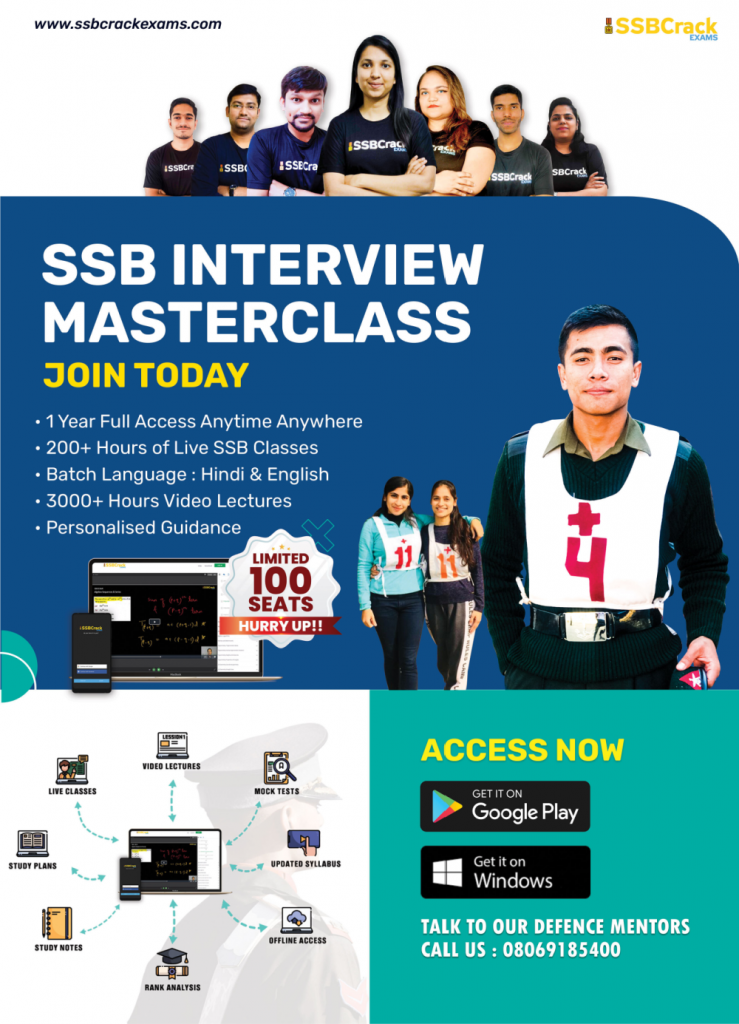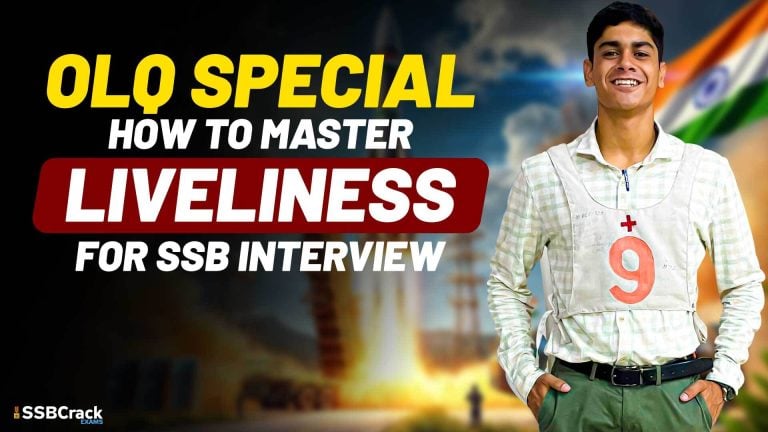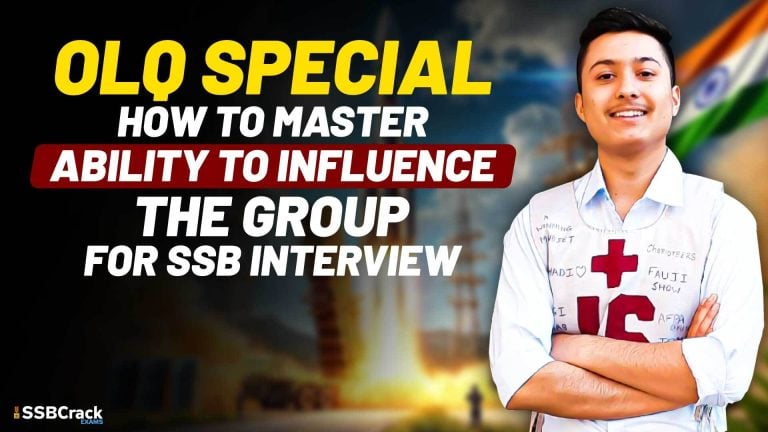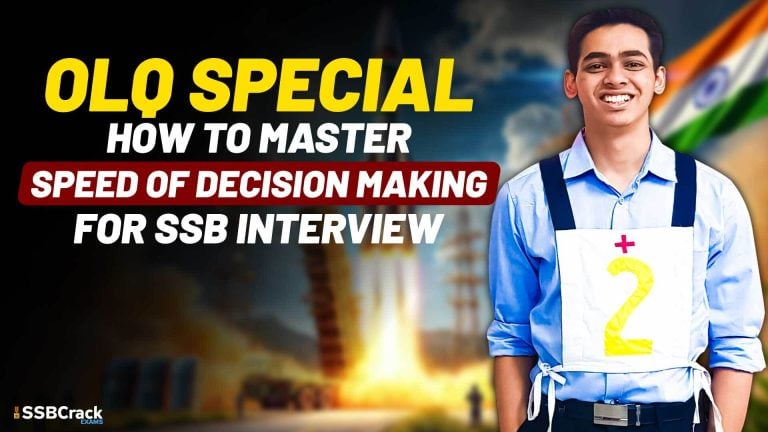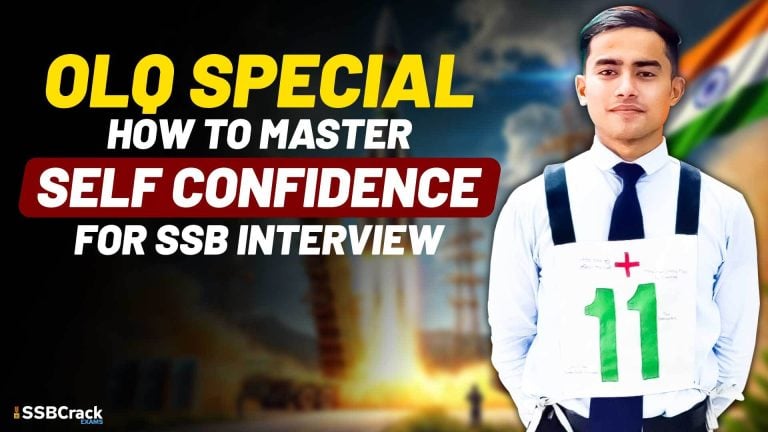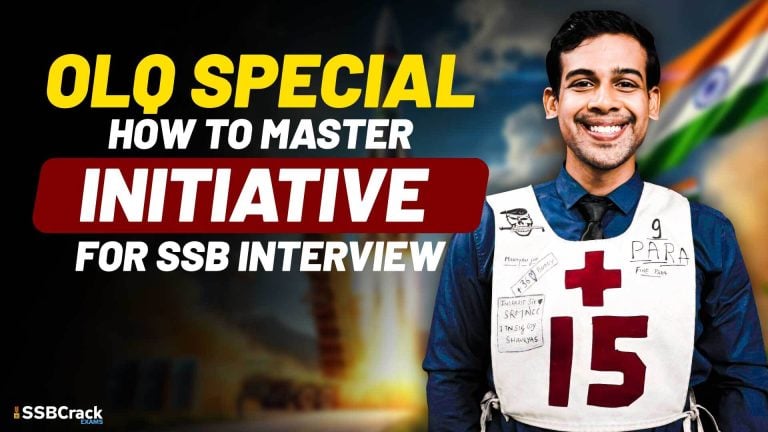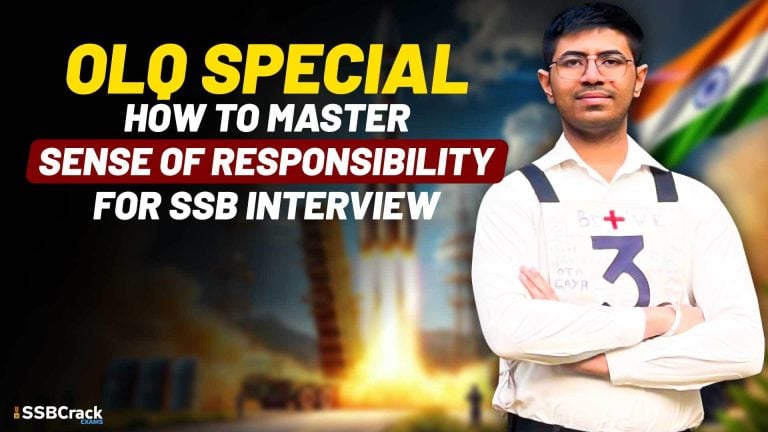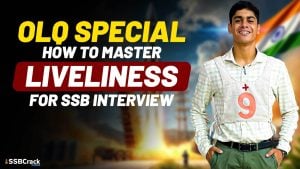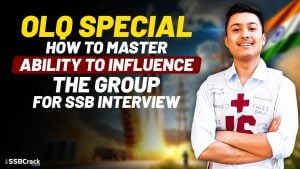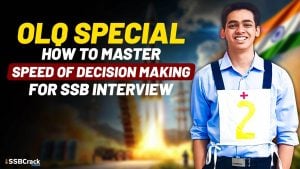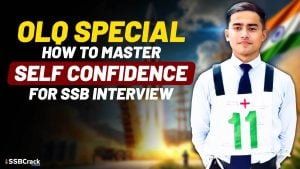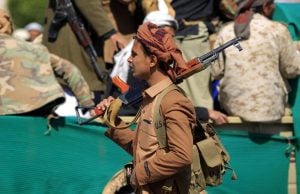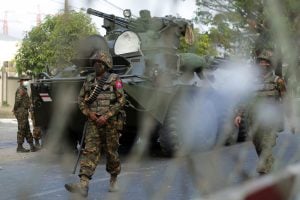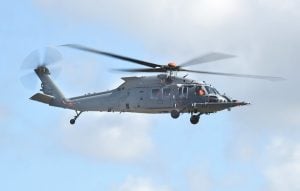Getting selected for the Indian defence services is one of the most prestigious and proud moments for any defence candidate. Although there are many hurdles in this way. Firstly the candidate will have to clear the written exam such as CDS, NDA, AFCAT, TA, ACC, and other direct entries. Then, they will have to go through the difficult 5 days SSB interview process.
Everything you should know about the 5-day SSB Interview Process has been provided here, and this article will provide you with complete details of all the tests in the interview. The SSB interview process is the same for CDS, NDA, AFCAT, and other similar exams. This information is useful for all candidates who appear in SSB interviews for CDS, NDA, TES, TGC, UES, TA, INET, AFCAT, and other positions.
SSB Interview
The SSB Interview conducted by the respective military institution – Indian Army, Indian Navy, and Indian Air Force – is a significant barrier in the way of defence aspirants after clearing the written exams such as CDS & NDA, and AFCAT. This article will go over the 5-Day SSB interview process for CDS, the 5-Day SSB interview procedure for NDA, day-by-day tasks in the SSB interview, and SSB interview tips.
Most candidates are aware of the process till the written exam but are clueless after that. Whereas, the real struggle starts with the SSB interview where they test the mental and physical ability of candidates. Here, we got you covered! In this article, we will provide you with every detail of 5 day SSB interview process.
What exactly is an SSB interview?
The SSB interview is designed to assess an Aspirant’s 15-character traits known as “Officer Like Qualities.” The following procedure is used to test the character traits:
- Mansa (which means thoughts; Psychological tests are conducted for this) (means thoughts; Psychological tests are conducted for this)
- Vacha (which means speech; Interview conducted for this) (which means speech; Interview conducted for this)
- Karma (which means deeds or actions; Group testing is done for this) (which means deeds or actions; Group testing is done for this)
SSB Interview Procedure
The 5-day SSB procedure for all SSB interviews is outlined below. This SSB interview process may vary depending on the SSB Board’s requirements and the type of entry you apply for. Check out the SSB Selection Process for CDS, AFCAT, and other entries below.
Day 0 (Reporting)
An officer(s) of the board usually greets the aspirants at the station and transports them to the selection center. Following the Aspirants’ arrival, an ‘Opening Address’ is given in which an officer of the board briefs them on their stay for the next 5 days. Following that, the Aspirants’ original documents are verified in Document Verification.
In some boards (particularly the Air Force), the reporting day is considered Day 1 of SSB, and testing begins on the same day.
Day 1 (Screening)
The first day involves 3 tests:
- Officer Intelligence Rating Test (OIR Test – Paper 1 & Paper 2)
- Picture Perception & Discussion Test (PP&DT)
Officer Intelligence Rating Test (OIR Test)
The first day consists of the ‘Officer Intelligence Rating Test,’ which includes Verbal and Nonverbal Tests. The Aspirant is given two booklets, each with 40 questions. Each pamphlet has a time limit of 15 to 17 minutes.
PP&DT (Picture Perception and Discussion Test)
This test can be further classified as follows
Picture Perception: For 30 seconds, an image is displayed, and Aspirants must take notes on its details such as the sex, age, and mood of the characters, as well as the action performed by them. In four minutes, the Aspirants must create a story based on that image.
Group Discussion: From the batch, a group of 10-15 Aspirants is formed, and each Aspirant must tell their story and then discuss it in the group to reach a common consensus.
The results are announced, and the shortlisted Aspirants are retained for the next round of testing.
Psychological Test
A Psychological Test is administered on the second day of SSB. On this day, the following tests will take place:
Thematic Apperception Test (TAT): Aspirants are shown 12 images (one blank) and given 4 minutes to write a story. The time limit is imposed to assess each Aspirant’s natural response.
Also read: 10 Ways To Master PPDT And TAT Story Writing
Word Association Test (WAT): Aspirants are shown 60 words for 15 seconds each, and they must write down a sentence that comes to mind when they see the word.
Also read: Word Association Test WAT [100+ New Words]
Situation Reaction Test (SRT): Aspirants are given a booklet containing 60 real-life situations in which they must write their reactions. This exercise takes 30 minutes to complete.
Also read: 10 Mind-Refreshing Situation Reaction Test Questions
Self-Description Test (SDT): Aspirants must write a few paragraphs describing themselves in context. For example, writing their parents’, teachers’, and friends’ opinions, as well as the qualities they wish to develop. This test has a time limit of 15 minutes. These tests are designed to assess an Aspirant’s psychological suitability for the armed forces.
Also read: 7 Tips To Write Genuine Self Description For SSB Interview And Sample Responses
Day 3 (Group Testing – I)
The candidates are sorted into groups as per their chest number and then each group performs the followings 9 tasks under supervision of the assessor i.e the GTO . Mostly six of these are conducted on day -3 and rest on day -4. Sometimes they are all conducted in same day with breaks in between.
- Group Discussions (GD) : The GTO at first gives two topics for the first GD out og which the group chooses one and then the group members put forth their views . For the second GD the GTO gives a topic and then the same thing happens again. Here there is no need for the group to come to a conclusion .
- Group Planning Exercise (GPE) : The GTO explains a situation where there are various problems using a map of the place. After this the candidates have to first write their solutions in 10 minutes using all their resources which includes their group too. Then group members discuss among themselves on a common plan to tackle the problems, which in turn is narrated by one of the group members.
- Group Obstacle Race / Snake Race: One of the most fun tasks in the whole process all the groups compete in a race crossing four obstacles which include single ramp jump, 8 -shaped bars, 10 feet wall, double wall, spider web, and ends with a giant slide. The rules to be followed are red colour shouldn’t be touched either by snake or my man. The snake is to be held by at least three members while crossing obstacles and breaking a rule gets a time penalty imposed by the GTO.
- Progressive Ground Task (PGT): This one is actually a ground task where there are 4 different obstacle course each increasing in difficulty level ahead. The group is expected to move ahead tackling these structures using their helping material which may include a rope, plank, balli, etc. and there is a load to be carried also. The group is expected to follow all the rules given by the GTO which include:
(a) Color Rule: - White means for both man and material
- Blue means only for man
- Red is out of bounds for all
(b) Ground is out of bounds for all
(c) Rigidity Rule: Helping materials can’t be tied to each other but can be tied to the structures
(d) Rule Of Infinity: The start and end lines extend to infinity i.e can’t be crossed directly.
(e) Distance Rule: No distance greater than 4 feet can be jumped.
- Half Group Task: Similar to PGT but the group is divided into two and there is only one obstacle to be tackled.
- Lecturette: An individual task where the candidates are expected to pick a card and then choose one out of the four topics on it which are of various categories and then speak on it for three minutes addressing his group
- Individual Obstacles: The candidate is expected to cross all the 10 obstacles all giving different scores as would be indicated on them .The candidate may repeat the tasks but only after he has completed all the 10. Following are the ten tasks with their scores indicated in ().
- Jumping over a single ramp (1)
- Jump over Double Barrel (2)
- Balancing Beam (3)
- Screen Jump (4)
- Burma Bridge (5)
- Tarzan Swing (6)
- Double Platform Jump (7)
- Double Ditch (8)
- Commando Walk (9)
- Tiger Leap (10)
- Command Task: Individual task candidates are called one by one in random order by the GTO where he asks them several questions and then explains to them a task similar to PGT. Then he asks the candidate for this task a commander to call two of his group members as subordinates to help him in clearing the obstacle.
- Final Group Task: As the name suggests the whole group is again given one obstacle similar to PGT which they have to cross together.
Also read: How To Perform Well In The GTO Tasks?
Personal Interview
Personal interviews are typically held on days 2, 3, and 4 following the completion of the respective daily tasks. Interviews are typically about everyday experiences, work, education, family, hobbies, academic achievements, general knowledge, and so on.
The personal interview may be conducted on any of the three days after the tests of that day are over . The Interviewing Officer based on data given by student in his PIQ( Personal Information Questionnaire) asks the student various questions based on his family, academics , participation in sports and extra curricular activities, hobbies and interests, responsibilities , general knowledge including about forces , personal life, etc. The timing of interview is mostly 40 minutes though it may stretch to one hour for some or even five minutes for some. Some of the mostly asked questions are :
- Name of the place you come from ?
- Institution where you had your education ?
- Your 10th class marks ?
- Favourite subjects in 10th class?
- Favourite teachers in 10th class, why?
- Teachers you didn’t like in 10th, why?
- Your 12th class marks?
- Favourite subjects in 12th class?
- Favourite teachers in 12th class, why?
- Teachers you didn’t like in 12th, why?
- Any competitive exam after 12th, what was the result?
- Your graduation %age/ 12th percentage?
- Why did you choose Btech/BSc/BA etc?
- Participated in any extra curricular activities?
- Any special achievement?
- Members of family ?
- Their occupation ?
- Hobbies and Interests?
- Pocket Money Expenses ?
- About your best friend?
Also Check: Best SSB Interview Online Coaching By SSBCrackExams
Day 5 (Conference)
The assessor begins the final day with a closing address, followed by the Aspirant Conference.
A board meeting is held, at which all of the officers who assessed the Aspirants the previous days are present. Each assessor confers with one another about an Aspirant’s suitability. Each Aspirant then appears individually before the board, where their overall evaluation is narrated and the committee makes recommendations. The borderline Aspirants are put in situations, and a group decision is made.
Following the announcement of the results, the shortlisted Aspirants are retained for additional medical examinations.
Candidates who will appear for the SSB interview can enroll themselves in the SSB Interview online coaching provided by SSBCrackExams.
The highly qualified tutors of SSBCrackExams will provide students with in-depth knowledge, a clear course framework, rich content, and constant supervision via advanced technology and simple learning approaches in order to help them prepare for the SSB interview.
You might ponder over the question of why you should choose to take online SSB interview coaching by the SSBCrackExams. And here are some more facts: why?
- Student-friendly classes – SSBCrackexams online coaching classes are student friendly.. It means that the students and their doubts are given the utmost priority.
- Digitally advanced video lectures – The quality of video lectures is extremely good. Students can watch videos as per their convenience.
- Live classes – SSBCrackExams also conduct live classes to guide the students and clear their doubts. These live classes help to boost confidence in students prior to the SSB Interview.
- Teaching by top-rated tutors – The students get taught from the top notch faculties having experience of many years in teaching and guiding the students.
- Doubt clearing Sessions – SSBCrackExams conduct doubt clearing sessions which help in clearing the doubts of the students. This helps in the overall preparation of SSB interview of the students and fills even the slighest gap of doubt among them.
- Pocket-friendly courses – The most important is the price of online SSB coaching provided by SSBCrackExams. It is pocket friendly and way too low compared to market prices.
QnA’s in SSB Interview
What is an SSB interview?
The Services Selection Board (SSB) conducts interviews for the selection of candidates suitable for training for the post of commissioned officers across all three forces. It is a comprehensive 5-day process divided into two stages after which recommended candidates undergo medical examinations.
What are the 5 stages of SSB?
The activities included in the Psychological Tests are- Thematic Apperception Test [TAT], Word Association Test [WAT], Situation Reaction Test [SRT], and Self Description Test [SD].
How are SSB marks calculated?
SSB has a total of 900 points. It is then divided into four parts (psychology, GTO, interview, and conference round), with each test phase receiving 900/4=225 marks. You must receive at least 90 marks out of 225 in order to receive a “Yes” from any of the assessors, while less than 90 marks simply mean “No.”
How many SSB attempts are there?
There is no limit to the number of attempts that can be made.
Can I speak Hindi in the SSB interview?
All competitive exams have questions in English, though it may not be so for Hindi. This clearly states that English is the only language that should be used for SSB interviews where Indians from the entire length and breadth of the country may be present,
To crack the SSB interview, You can join our SSB interview live classes batch and we recommend you Enroll SSB INTERVIEW ONLINE COURSE. Trusted by thousands of defence aspirants.
Also Read:


